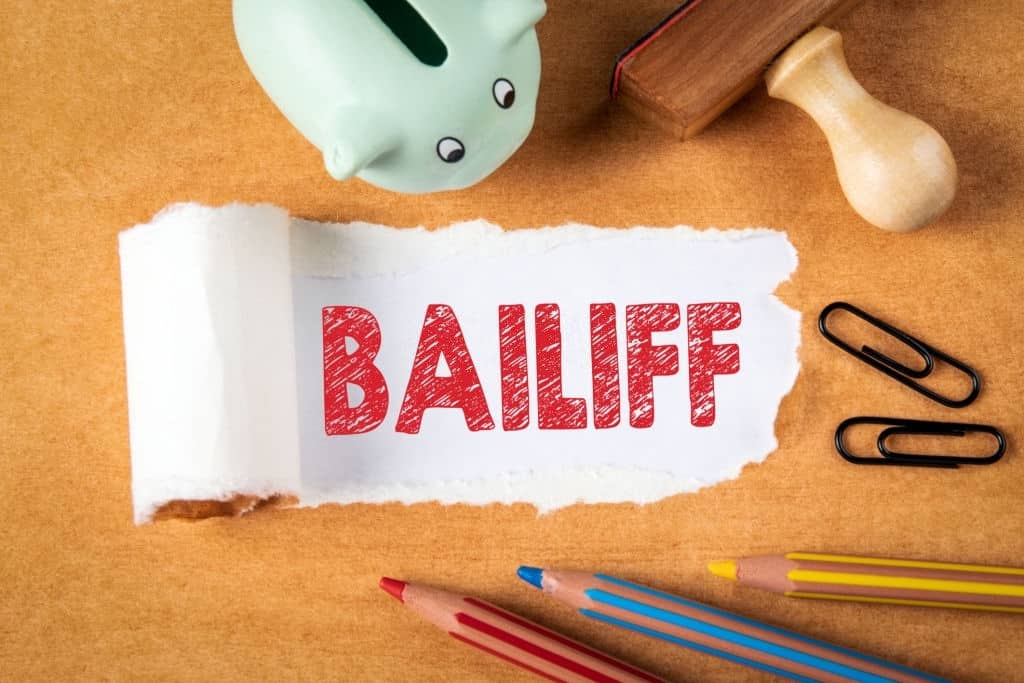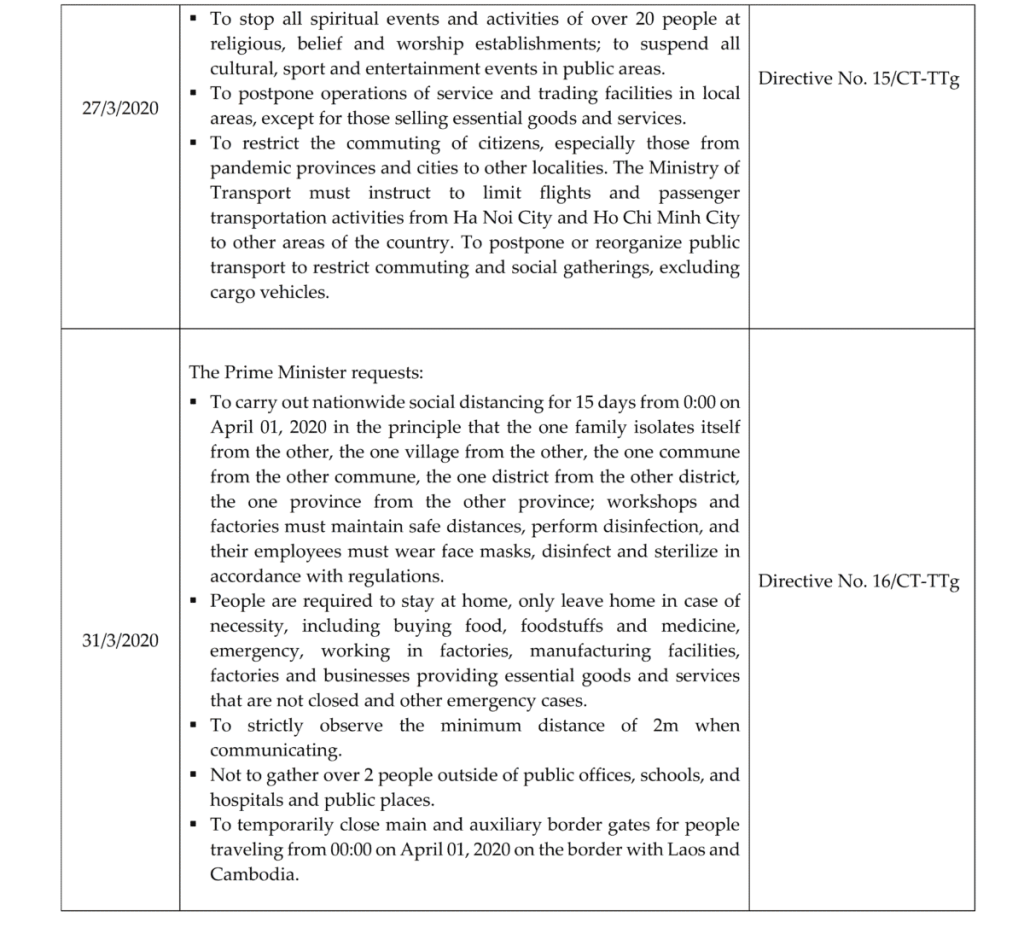On 08 December 2019, the Government issued Decree 08/2020/ND-CP on the organization and operation of Bailiffs (“the Decree 08/2020”). Accordingly, Bailiffs are allowed to carry out 04 activities as follows:
- Document delivery
- Making a bailiff certificate
- Verification of civil judgment enforcement conditions
- Organizing enforcement of the Courts’ judgments and decisions
1. Document delivery
- The Bailiffs are entitled to deliver the following documents: papers, dossiers, documents of the People’s Courts, the People’s Procuracies, the enforcement agencies; papers, dossiers, documents of the authorities with foreign competence related to legal assistance in the civil field.
- The document delivery is considered completed when the bailiff has completed the procedures as prescribed by law.
2. Making bailiff certificates
- According to Article 36 of Decree 08/2020, bailiffs are entitled to make their certificate to record actual events, activities at the request of organizations, individuals nationwide, except the cases as stated in Article 37 of Decree 08/2020.
- Bailiff certificates cannot be replaced by notarized or certificated documents, and other administrative documents.
- Bailiff certificates operate as evidences for the court’s consideration during the settlement of civil and administrative cases in accordance with laws; as the grounds for the implementation of transactions between agencies, organizations, individuals in accordance with laws.
- During the assessment of proof value of bailiff certificates , people’s courts, people’s procuracies can summon bailiffs, other agencies, organizations, individuals to verify the authenticity of bailiff certificates . Such bailiffs, other agencies, organizations, individuals must be present as summoned.
- In addition, according to Article 37 of Decree 08/2020, there are 9 cases in which Bailiffs are not allowed to make their certificates :
- The cases which are related to the rights, interests of the bailiffs themselves and their relative members, including: wife, husband, natural children and adoptive children; biological father, biological mother, adoptive father, adoptive mother, grandmother, uncle, aunts, biological brother and sister; nephew, niece, grandchildren.
- Violation of the regulations on national securities and defense including: Violation of objectives of national security and defense; disclosing state secrets, distributing news, documents, products belonging to state secrets; violation of the regulations on entry, exit and movement in the banned areas, protection areas, safety rims of security, defense and military areas; violation of the regulations on secret protection, protection of security works, national defense and military zones.
- Violation of private life, personal secrets and family secrets under Article 38 of the Civil Code; in contravention of social ethics;
- Certifying the contents and signatures in a contract and a transaction that it is subject to the scope of the notarization, authentication activities prescribed by the laws; certifying the accuracy, legality and social morality of the translation of papers and documents from Vietnamese into foreign languages and vice versa; certifying the signature, the copy true to the original;
- Recording the events and acts to transfer the right to use, the right to own land and assets without papers evidencing the right to use or ownership in accordance with laws.
- Recording the events and acts in order to conduct unlawful transactions as required by the bailiff certificate requester;
- Recording the events and acts of officials, professional army, workers and defense officers in agencies and units of the People’s Army, officers and soldiers in People’s Public Security agencies and units on their duty;
- Recording events and acts which are not directly witnessed by the Bailiffs;
- Other cases as prescribed by the laws.
3. Verification of civil judgment enforcement conditions
- Bailiffs are entitled to verify the enforcement conditions for the cases which are under jurisdiction of the enforcement authorities in the province where the bailiff office is located.
- During the verification, the bailiffs have the rights to verify outside the province where the bailiff office is
4. Enforcement of of Courts’ judgments and decisions
According to Article 51.1 of Decree 08/2020, Bailiffs are entitled to organize the judgment execution at the request of the concerned persons with respect to the following judgments and decisions:
- The effective first instance judgments or decision of the people’s district court; the effective first instance judgments or decisions of the people’s provincial court where the Bailiff office is headquartered.
- The appellate judgments or decision of the people’s provincial court where the Bailiffs office is headquartered; the appellate judgments or decisions of the high court with respect to the judgments or decisions of the people’s provincial court where the Bailiff office is headquartered.
- The decision on cassation or reopening of the high court with respect to the judgments or decisions of the people’s district court, the people’s provincial court where the Bailiff office is headquartered.
- The bailiffs are not allowed to organize the execution of the judgments and decisions which are within the scope of authority for the head of the civil judgment agencies to proactively issue judgment execution decisions according to Article 36.2 of the Law on Civil Judgment Execution.
In addition, Decree 08/2020 also provides regulations on the tasks banned against bailiffs, , bailiffs’ offices, state management, handling of violations, settlement of complaints, denunciations, dispute settlement and control of the operation of the bailiff
Decree 08/2020 takes effect from 20 February 2020 and replaces Decree 61/2009/ND-CP and Decree 135/2013/ND-CP.






![We Are Hiring Now! | Feb 2023 [CLOSED POST] Tuyen Dung](https://gvlawyers.com.vn/wp-content/uploads/2023/02/Tuyen-Dung-.png)


